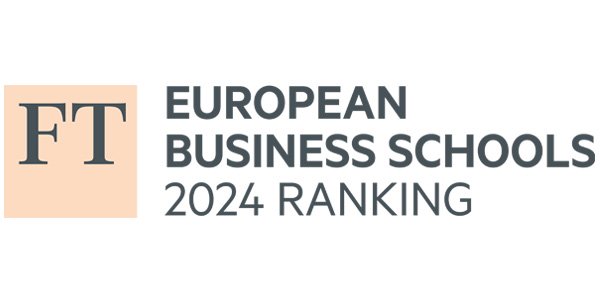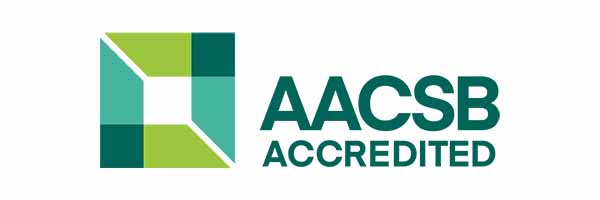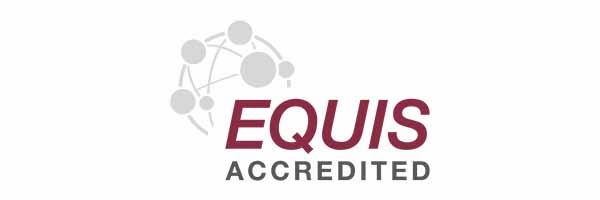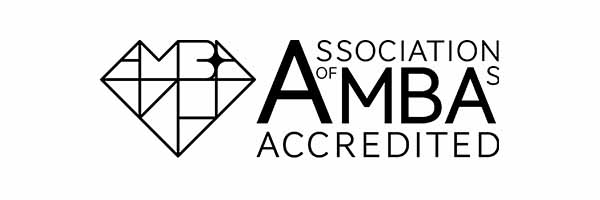BBA Hons Business Administration
ApplyKey facts
- UCAS Code: N101
- Accreditation: Strathclyde Business School is triple accredited (AACSB, EQUIS, AMBA)
Accelerated entry: degree is taken over 3 years instead of 4
Study with us
- learn at a pioneering internationally renowned academic organisation
- develop skills in key areas of management, team working and communication, which are highly valued by graduate recruiters, through our innovative Leadership Development Programme
- opportunity to tailor your degree to suit your career through a choice of business specialisms
- benefit from our links with business, industry and the public sector
Why this course?
When you choose to study with us, you’ll join an internationally rated school with an excellent reputation around the world for teaching and research.
We are also one of the few business schools in the world to have triple accreditation for the quality of our degree course. This accreditation makes your degree valuable to employers worldwide.
The first year of the BBA is an intensive combination of Years 1 and 2 of the four-year BA degree. Second and third year correspond directly to Years 3 and 4 of the four-year BA. The BBA degree allows you to specialise in a named subject depending on the classes chosen in Years 1 and 2.
Named awards include Bachelor (Honours) of Business Administration with:
- Business Analysis & Technology
- Business Enterprise
- Economics
- Human Resource Management
- Hospitality & Tourism Management
- Marketing


What you'll study
Year 1
You’ll study the compulsory Leadership Development Programme 1, Academic Skills and Introduction to Finance, plus a choice of four* business subjects from the list below, one choice must be either Business Analysis and Technology or Economics:
- Business Analysis and Technology
- Business Enterprise
- Economics
- Hospitality and Tourism Management
- Human Resource Management
- Marketing
*If you wish to follow a named subject specialism with the aim of graduating with a BBA Honours in a named subject rather than the generalist BBA Honours degree, you would choose three business subjects with one choice being either Business Analysis & Technology or Economics, and an additional 20 credit worth of class(es) in your chosen specialist business subject.
Year 2
Compulsory classes are Leadership Development Programme 2, Managing Across Cultures and Frontiers, plus three* business subjects from the list provided in Year 1 and 20 credits worth of elective class(es).
*If you are following a named subject specialism from Year 1, you would choose two business subjects and an additional 20 credit worth of class(es) in your chosen specialist subject.
Year 3/Honours year
You’ll study the compulsory class Contemporary Topics in Business and Management, plus three* business subjects and a dissertation worth 40 credits**.
*Similar to the earlier years of the degree, if you were following a specialist pathway, you would take three classes in your chosen subject.
** If a 20 credit dissertation is available and you choose to take it, you would also have to take an additional 20 credits worth of classes in your chosen specialist subject.
Leadership Development Programme (LDP)
A particular feature of the BBA is the compulsory Leadership Development Programme (LDP) which runs during Years 1 and 2. This is the equivalent of the Management Development Programme (MDP) undertaken in our other degree programmes. On the LDP you will cover areas such as leadership, negotiation, entrepreneurship, ethics and strategic management, as well as honing your practical skills in areas of IT, numeracy and research methodology.
Academic Skills
This module aims to provide students with key skills to succeed throughout university, towards employment. Over two semesters the module will support capacity building in academic practice, assessment and feedback, teamwork, and communication, as well as introducing students to research, data analysis and tools for the digital environment. Students will be encouraged to reflect on their strengths and weaknesses to identify developmental areas to work on throughout their first year and beyond.
Strathclyde Business School blog
One of the most important resources available to you is being part of the Strathclyde Business School Community.
Keep up-to-date with the SBS blog, used extensively by staff and students to showcase all our activities.
Compulsory classes
Introduction to Finance
This module aims to provide you with an introduction to finance. The concepts and theories covered will be at an introductory level. You'll develop a basic understanding of how finance functions operate and businesses analyse the environment in which they are operating.
Academic Skills
This class aims to support you in developing key skills that are important to both your academic and future career. These include skills associated with:
- research
- data analysis
- critical writing
- team working
- communication
Leadership Development Programme 1
On the LDP you will cover areas such as leadership, negotiation, entrepreneurship, ethics and strategic management, as well as honing your practical skills in areas of IT, numeracy and research methodology.
Optional modules
Plus one of the following from the classes offered by Business Analysis & Technology, and Economics:
Managing Business Processes & Information Systems
This class forms a bridge between the first year class and more advanced classes in Enterprise Resource Planning, Business Process Outsourcing, the role of ICT in business environment, etc.
The class will seek to combine conceptual and technical skills, and it will provide the basis for a series of classes in third and Honours years, especially in areas of Business Process Integration with ERP, organisational innovation and E-commerce.
Analysing & Improving Operations
This class is one of the two undergraduate Business Analysis & Technology classes before the Honours year that apply various approaches to operations management problems. Following on from the fundamentals in the first year class, this class introduces you to the subject of operations management in detail and provides opportunity for you to apply some of the basic decision analysis techniques, including simulation, in this context.
Intermediate Microeconomics
Intermediate Macroeconomics & Data Analytics
Elective subjects
Choose two or three level 2 subjects* from the list below:
- Business Enterprise
- Hospitality and Tourism Management
- Human Resource Management
- Marketing
Plus either/or the two subjects below, depending on the optional choice of classes:
- Business Analysis & Technology
- Economics
*for a name specialist pathway choose two subjects and an additional class in the specialist subject, or for the generalist degree choose three subjects.
Compulsory classes
Leadership Development Programme 2
Managing Across Cultures & Frontiers
This class aims to allow you to:
- understand cross-cultural variations and their impact on international human resource management
- appreciate the importance of the often overlooked ‘soft skills’ of management
- be equipped with knowledge and skills of management in an international business context
- develop critical thinking skills
Elective subjects
Progressing from your Year 1 choices, choose two or three level 2 subjects* offered by the subjects below:
- Business Analysis and Technology
- Business Enterprise
- Economics
- Hospitality and Tourism Management
- Human Resource Management
- Marketing
*for a named specialist pathway choose two subjects and an additional class in the specialist subject, or for the generalist degree choose three subjects.
Compulsory classes
Contemporary Topics in Business & Management
This class will draw on current real-life examples.
Dissertation
Elective classes
Elective classes
You'll take 3 classes from the level 4 (Honours year) set of classes offered by the Strathclyde Business School. If you choose the BBA degree with specialism in a particular subject field, at least two of those classes must be in that chosen specialism.
Triple-accredited business school
Learning & teaching
Teaching is over two semesters in blocks of 12 weeks. Classes are taught through lectures, tutorials, and seminars alongside team-based projects, online materials, and interactive sessions using personal response systems.
External contributors from partnership corporate organisations are involved in teaching and/or assessment of student presentations.
The innovative and highly acclaimed Management Development Programme (MDP) is at the core of our undergraduate degrees in the Business School and comprises a series of classes which you take throughout Years 1 to 3.
You develop knowledge and skills in key areas of management, and team-working, communication and decision-making skills, all of which are highly sought-after by employers.
Major employers and alumni from all sectors are involved in the MDP, participating in group sessions, observing student presentations, and providing feedback. Organisations involved include Barclays, Deloitte, Procter & Gamble and Ernst & Young. In first year the best teams are selected to present to senior staff in one of the sponsoring organisations, and there are prizes for the best projects.
The programme builds your confidence and entrepreneurial capabilities, and promotes awareness of globalisation and ethical issues in personal and business decision-making. In Year 3, you develop your own pathway from internships, involvement with business projects, engagement in interdisciplinary activities and business clinics.
For this BBA degree, students take the Leadership Development Programme which is a version of the main MDP.
Assessment
The majority of classes involve a final unseen exam which is normally at the end of the semester. This is normally supplemented by individual and/or group coursework.
Students normally have one opportunity to be re-assessed for a failed class. Exam resits normally take place during the summer.
A range of assessment techniques are used including:
- business reports
- case studies
- essays
- presentations
- individual and group projects
- learning journals
- peer assessments
Entry requirements
Due to the accelerated nature of this degree, entry requirements are defined at a higher level than the four-year BA (Honours). Required subjects are shown in brackets.
Deferred entry is not normally accepted.
| Advanced Highers |
AAB (Higher English B, Maths National 5 B) ABB (Higher English B, Maths National 5 B) |
|---|---|
| A Levels | AAB-BBB (GCSE English Language 6/B or Literature 6/B, or an essay-based A Level B may be considered in lieu of English; GCSE Maths 6/B) |
| International Baccalaureate | IB Diploma: 34-30 (no subject below 5 and including English SL5, Maths/Maths Studies SL5) |
| HNC/HND | Relevant HND, A in Graded Units |
| International students | View the entry requirements for your country. |
*Standard entry requirements
Offers are made in accordance with specified entry requirements although admission to undergraduate programmes is considered on a competitive basis and entry requirements stated are normally the minimum level required for entry.
Whilst offers are made primarily on the basis of an applicant meeting or exceeding the stated entry criteria, admission to the University is granted on the basis of merit, and the potential to succeed. As such, a range of information is considered in determining suitability.
In exceptional cases, where an applicant does not meet the competitive entry standard, evidence may be sought in the personal statement or reference to account for performance which was affected by exceptional circumstances, and which in the view of the judgement of the selector would give confidence that the applicant is capable of completing the programme of study successfully.
**Minimum entry requirements
Contextual Admissions for Widening Access
We want to increase opportunities for people from every background.
Strathclyde selects our students based on merit, potential, and the ability to benefit from the education we offer. We look for more than just your grades. We consider the circumstances of your education and will make lower offers to certain applicants as a result.
University preparation programme for international students
We offer international students (non-UK/Ireland) who do not meet the academic entry requirements for an undergraduate degree at Strathclyde the option of completing an Undergraduate Foundation Programme in Business and Social Sciences at the University of Strathclyde International Study Centre.
Upon successful completion, you can progress to your chosen degree at the University of Strathclyde.
International students
We've a thriving international community with students coming here to study from over 140 countries across the world. Find out all you need to know about studying in Glasgow at Strathclyde and hear from students about their experiences.

Fees & funding
All fees quoted are for full-time courses and per academic year unless stated otherwise.
Fees may be subject to updates to maintain accuracy. Tuition fees will be notified in your offer letter.
All fees are in £ sterling, unless otherwise stated, and may be subject to revision.
Annual revision of fees
Students on programmes of study of more than one year (or studying standalone modules) should be aware that the majority of fees will increase annually. The University will take a range of factors into account, including, but not limited to, UK inflation, changes in delivery costs and changes in Scottish and/or UK Government funding. Changes in fees will be published on the University website in October each year for the following year of study and any annual increase will be capped at a maximum of 10% per year.
| Scotland | £1,820 Scottish undergraduate students undertaking an exchange for a semester/year will continue to pay their normal tuition fees at Strathclyde and will not be charged fees by the overseas institution. |
|---|---|
| England, Wales & Northern Ireland | £9,535 |
| Republic of Ireland |
If you are an Irish citizen and have been ordinary resident in the Republic of Ireland for the three years prior to the relevant date, and will be coming to Scotland for Educational purposes only, you will meet the criteria of England, Wales & Northern Ireland fee status. For more information and advice on tuition fee status, you can visit the UKCISA - International student advice and guidance - Scotland: fee status webpage. Find out more about the University of Strathclyde's fee assessments process. |
| International | £24,650 |
| Available scholarships | Take a look at our scholarships search for funding opportunities. |
| Additional costs | International students may have associated visa and immigration costs. Please see student visa guidance for more information. |
Please note: All fees shown are annual and may be subject to an increase each year. Find out more about fees.
How can I fund my studies?
Students from Scotland
Fees for students who meet the relevant residence requirements in Scotland, you may be able to apply to the Student Award Agency Scotland (SAAS) to have your tuition fees paid by the Scottish government. Scottish students may also be eligible for a bursary and loan to help cover living costs while at University.
For more information on funding your studies have a look at our University Funding page.
Students from England, Wales & Northern Ireland
We have a generous package of bursaries on offer for students from England, Northern Ireland and Wales:
You don’t need to make a separate application for these. When your place is confirmed at Strathclyde, we’ll assess your eligibility. Take a look at our scholarships search for funding opportunities.
International Students
We have a number of scholarships available to international students. Take a look at our scholarship search to find out more.
Glasgow is Scotland's biggest & most cosmopolitan city
Our campus is based right in the very heart of Glasgow. We're in the city centre, next to the Merchant City, both of which are great locations for sightseeing, shopping and socialising alongside your studies.
Careers
Our graduates are in high demand in both the public and private sector and can choose from a wide range of business careers.
Roles related to your degree include corporate investment banker, management consultant and risk manager.
Apply
Start date:
Business Administration (2 year entry)
Start date:
Business Administration (2 year entry)
Start date: Sep 2025
Business Administration (2 year entry)
Start date:
Business Administration (2 year entry)
Contact us
Have you considered?
We've a range of undergraduate courses similar to this one which may also be of interest.
Discover Uni
Discover Uni includes official statistics about higher education courses taken from national surveys and data collected from universities and colleges about all their students.





